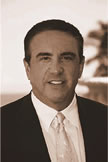You are here: Home: PCU 1|2005: Editor's Note
 |
 |
| Editor’s Note |
 |
Turning points |
|
A 57-year-old urologist is s/p radical prostatectomy for low-grade prostate cancer
It’s been four months of emotional misery since your surgery. Although the tumor was low grade, you obsess about your own death and have become totally isolated from your wife of 34 years. From the beginning, she urged you to obtain a second opinion and possibly forego surgery, but you wouldn’t listen. Now, rather than supporting you in the face of erectile dysfunction and stress incontinence, she is resentful.
Suddenly, you are facing a second onslaught — a myocardial infarction that transforms you once again into a patient in your own hospital. It is Valentine’s Day, and the pitiful irony of your situation crashes down on your beleaguered soul. You are alone and without hope.
You hear a knock at your hospital room door. It is your wife, bringing the glowing smile that you have not seen in quite some time. From a bag tucked under her arm, she removes a “do not disturb” sign and attaches it to the door. She has candles, flowers, dinner, wine and endless affection. She climbs into bed with you and curls up by your side. You realize that perhaps things will be okay. |
There are moments in all of our lives, in which divine inspiration or perhaps a programmed instinct for survival leads us to a new and hopeful path. For Jeff and Lenore Deeths, that moment occurred at a point of utter hopelessness, and now, seven years later, this devoted couple has largely recovered from the hurricane- like disintegration that started with Jeff’s radical prostatectomy.
These very private people tell their stories in this issue of Prostate Cancer Update because they realize how important it is for physicians to understand what it’s like to deal with prostate cancer and the impact of treatment.
Many other patients can identify similar moments when they too reached inside themselves to find the courage and optimism to move forward. Also in this issue, Adam Dicker discusses a patient with locally advanced disease, who was treated with radiation therapy and two years of androgen deprivation. This man has now regained his testosterone level, returned to normal function, and is without evidence of recurrence two years later.
It is challenging to imagine what it’s like to regain libido and sexual function after living with chemical castration or to recover from fatigue, muscle weakness and vasomotor instability. So often we don’t appreciate what we have until it is taken away, but sometimes we are offered a second chance.
Dan Petrylak discusses another patient with prostate cancer who experienced a life-altering turning point — a football coach who was bedridden due to the effects of widespread metastases. This patient made the courageous decision to enroll in the SWOG trial 9916, and was randomly assigned to the docetaxel-estramustine arm. Three weeks later, the man was asymptomatic and in his front yard mowing the lawn. It is impossible to imagine what he felt when he inhaled the fresh, sweet smell of the grass beneath his feet.
At our recent “Clinicians with Prostate Cancer” roundtable meeting and recording session, medical oncologist and prostate cancer survivor Gustav Magrinat commented on the importance of physicians conveying a sincere and heartfelt sense of optimism. So where do doctors find hope for these patients?
I believe that miracles happen every day to men with prostate cancer. This may be as simple as a couple sharing a romantic embrace or a man mowing the lawn. Some of these moments are more transient than others, but experienced clinicians use the memories of these triumphs to inspire patients who may be mired in hopelessness and despair.
Our job is to bring skills, knowledge and compassion to the bedside, but what they don’t teach in medical school is that a force beyond all of us may intercede when all else fails. Every day we should remind our patients of this important possibility.
— Neil Love, MD
NLove@ResearchToPractice.net
Select publications
Deliveliotis C et al. Prostate operations: Long-term effects on sexual and urinary function and quality of life. Comparison with an age-matched control population. Urol Res 2004;32(4):283-9. Abstract
Hollenbeck BK et al. Sexual health recovery after prostatectomy, external radiation, or brachytherapy for early stage prostate cancer. Curr Urol Rep 2004;5(3):212-9. Abstract
Lintz K et al. Prostate cancer patients’ support and psychological care needs: Survey from a nonsurgical oncology clinic. Psychooncology 2003;12(8):769-83. Abstract
Steginga SK et al. Prospective study of men’s psychological and decision-related adjustment after treatment for localized prostate cancer. Urology 2004;63(4):751-6. Abstract
Trask PC. Quality of life and emotional distress in advanced prostate cancer survivors undergoing chemotherapy. Health Qual Life Outcomes 2004;2(1):37. Abstract
|

